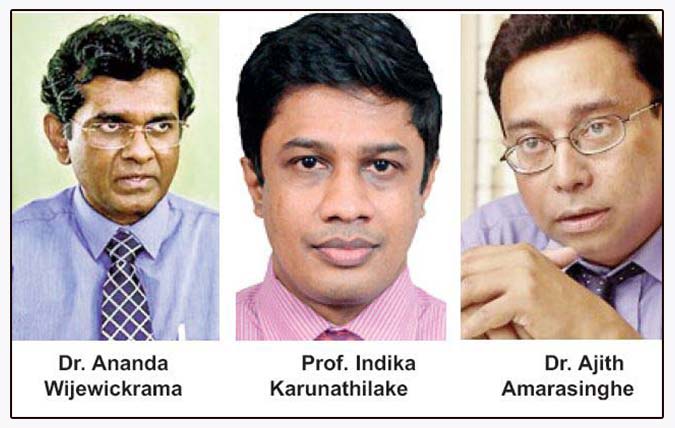News
One of the most cost-effective health systems in crisis owing to corruption, nepotism, cronyism, bungling

Corruption, nepotism, cronyism and mismanagement were the reasons why Sri Lanka’s health system is in crisis, Secretary General of the Asia Pacific Academic Consortium for Public Health (APACPH), Prof. Indika Karunathilake said recently at a televised dicussion.
“This happens at all levels. The system has failed. There are multiple checks and balances in the system to ensure that if something goes wrong at one level, it can be identified and rectified at another. But when these checks and balances are gone, the system collapses. This is what we are seeing now,” he said.
Prof. Karunathilake added a large number of health staffers had been compelled to leave the country, as well.
The Sri Lankan healthcare system is known as one of the most cost-effective systems in the world, Consultant Pediatrician Dr. Ajith Amarasinghe, who also appeared at the discussion, said. Sri Lanka’s per capita expenditure on healthcare is about 400 U.S. dollars a year, he added.
“In the UK, per capita expenditure on healthcare is about USD 4,000 a year. In the U.S its 9,000 dollars. However, Sri Lankan healthcare indices are comparable to the above mentioned developed countries. This excellent system is now facing a crisis. This crisis is not purely due to the economic crisis. The 2023 health budget is double that of 2021 in rupee terms. Even if you take depreciation, the spending has not declined. So, there is no reason for a shortage of drugs or equipment to occur.”
Dr. Amarasinghe said there is also a problem with the quality of drugs distributed in the government and private hospitals.
“The reputation of our system has been tarnished in a very short period of time. How did this happen and who is responsible? People who were in charge of the system in the past few years are responsible. Former Minister Keheliya Rambukwella and his team are responsible. The Minister has been removed,” he said.
Meanwhile, Chairman of the Professional Forum of Physicians on Medical and Civil Rights Dr. Chamal Sanjeewa said the achievements of the past with regards to health are being dismantled. The meternity mortality, the various indices of the health of children under five, etc., are showing a deterioration, he said.
President-Elect, Sri Lanka Medical Association (SLMA) Dr. Ananda Wijewickrama said the current crisis in the health system is unprecedented.
Dr. Thenuwan Wickramasinghe of the Government Medical Officers Association (GMOA) said patients coming into government hospitals have increased by 40 percent. This is because they can’t afford private healthcare.
“The healthcare system still survives because of the human capital,” he said.